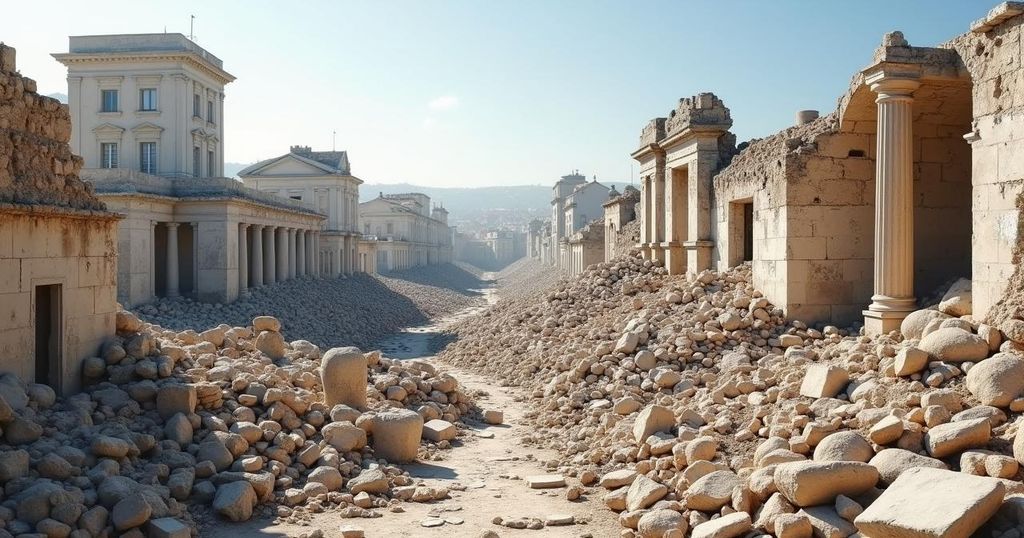An Overview of the Lisbon Earthquake of 1755
The Lisbon earthquake of 1755, occurring on November 1, was a devastating disaster that struck during All Saints’ Day, resulting in an estimated 60,000 deaths and extensive destruction of public buildings and homes. The earthquake triggered a tsunami, creating waves that reached as far as the Caribbean. This event had significant philosophical and sociological implications, influencing European thought and urban planning for centuries.
The Lisbon earthquake of November 1, 1755, also known as the Great Lisbon Earthquake, was a catastrophic seismic event that struck the city of Lisbon, Portugal. This disaster resulted in widespread devastation, with an estimated death toll of approximately 60,000 individuals within the city alone. The earthquake primarily manifested as a series of severe tremors that occurred during the morning hours, with many residents attending the All Saints’ Day mass in local churches. These structures were unable to withstand the violent shaking, resulting in their collapse and the tragic loss of numerous lives among worshippers. The destruction extended beyond immediate casualties; it resulted in the demolition of significant public buildings and around 12,000 individual dwellings. Research conducted in modern times indicates that the primary cause of this earthquake was the faulting of the seafloor at the boundaries of tectonic plates in the mid-Atlantic region. The seismic activity generated a tsunami that struck the coastal areas, creating waves that reached heights of approximately 20 feet (6 meters) in Lisbon and 65 feet (20 meters) in Cádiz, Spain. This tsunami traveled as far as Martinique in the Caribbean Sea, where it created waves of 13 feet (4 meters) above the mean sea level. The aftereffects of the earthquake and resulting tsunami were devastating, with destruction reported in areas as distant as Algiers, located 685 miles (1,100 kilometers) to the east. Following the seismic disaster, fires raged throughout the city of Lisbon for nearly six days, exacerbating the destruction and contributing to the fatalities. The Lisbon earthquake has since been immortalized in artistic and literary depictions, securing its place in history as a seminal event that significantly impacted Europe.
The Lisbon earthquake of 1755 was not merely a natural disaster; it had profound implications on European society, philosophy, and theology. Before this event, seismic activities were often viewed through a religious lens, interpreted as divine punishment. The sheer magnitude of the destruction and loss of life prompted major philosophical inquiries into existence and the nature of God, with thinkers like Voltaire and Rousseau contemplating the implications for human suffering and moral governance. This earthquake marked a turning point in how natural disasters were understood, leading to advancements in the fields of geology and disaster preparedness. Furthermore, the devastating effects on infrastructure and society necessitated significant rebuilding efforts and influenced urban planning methodologies in Lisbon and beyond.
The 1755 Lisbon earthquake remains one of the most significant natural disasters in history, not solely due to its immediate destructive impact but also its long-lasting effects on European thought and urban planning. Its extraordinary death toll and the magnitude of the devastation prompted a reevaluation of people’s understanding of natural events and their consequences. This earthquake has continued to resonate through art and literature, ensuring that it occupies an essential place in historical discourse. It serves as a crucial study in disaster preparedness and response, shaping the approach toward future seismic events.
Original Source: www.britannica.com




Post Comment